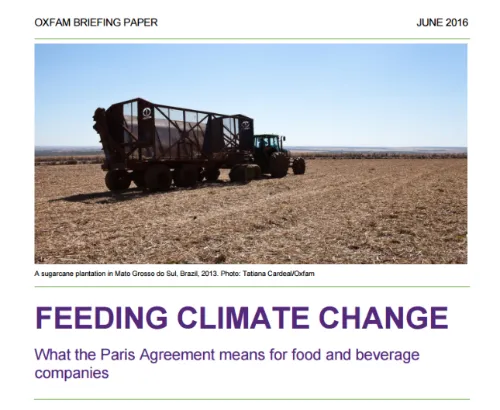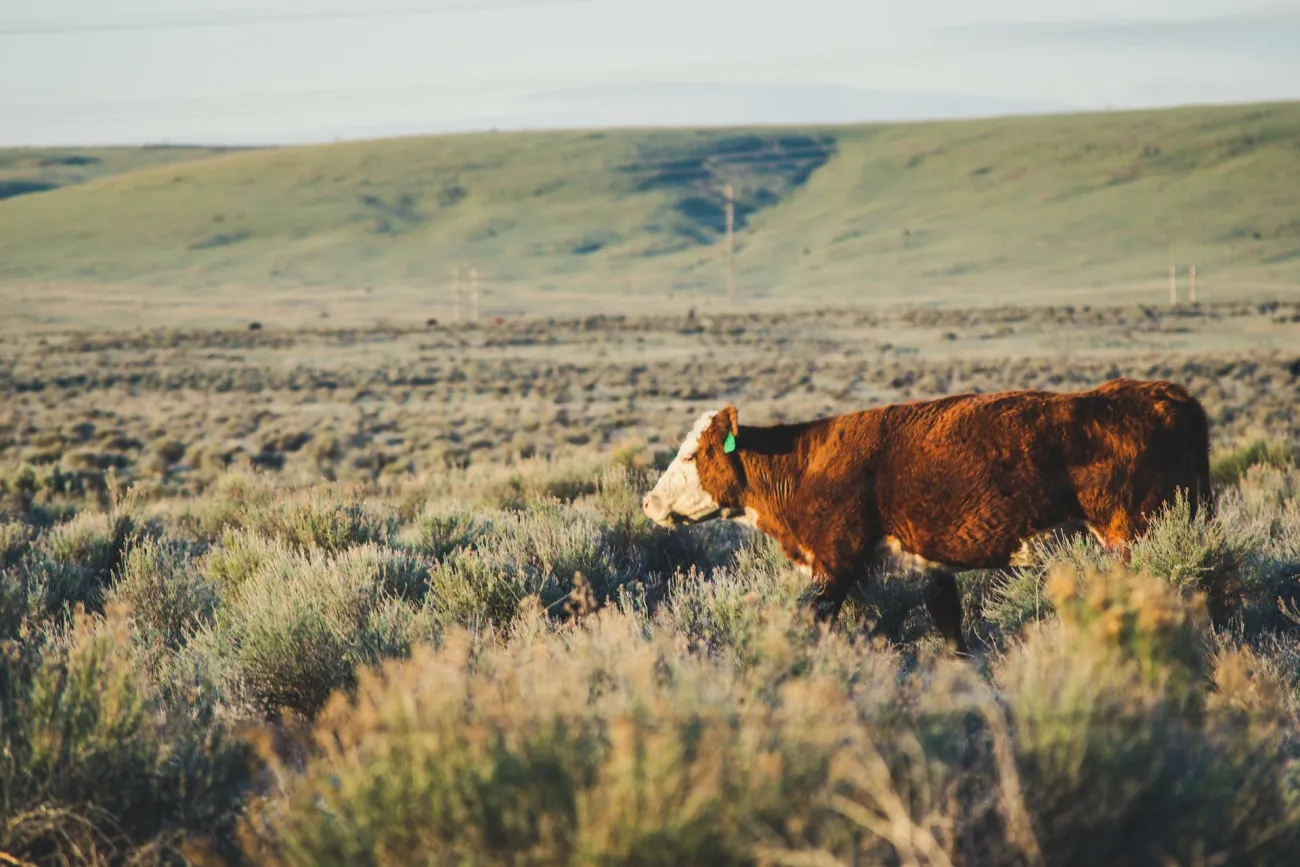The Oxfam briefing Feeding Climate Change: what the Paris Agreement Means for Food & Beverage Companies looks at commodities and climate change and policy from the perspective of the food and beverage industry.

It argues that the Paris Agreement marked a major breakthrough in support for climate action from many parts of the business community with hundreds of CEOs pledging to reduce their carbon footprint – 115 companies committed to aligning their targets to keep the global temperature increase below 2°C, and 52 companies promised to strive for 100 percent renewable energy.
The first section of this paper provides an overview of how food production and climate change are intertwined. The second section looks at what the Paris Agreement on mitigation means for food and beverage companies, including new research on the GHG footprints of specific food commodities. The third section asks the same question about climate change adaptation, presents new research on the contribution of food commodities to regional water scarcity, and explores how food and beverage companies can support small-scale farmers to strengthen their resilience to climate shocks. The final section offers a set of specific post-Paris policy recommendations to the food and beverage industry on both climate mitigation and adaptation.
Ultimately the briefing paper argues that since the food and beverage sector is one of the sectors that is at highest risk of being affected by climate change, is responsible for a giant emissions footprint and reliant on millions of small-scale farmers and agricultural workers in the regions most vulnerable to climate change, it should lead the next generation of post-Paris corporate climate commitments.
Although the report looks at food and drinks broadly, and identifies rice as the biggest culprit, it does not mention meat production and consumption. The decision to exclude this from the report is described as follows in the report: "Note that, while livestock are a major source of methane emissions in agriculture, the study commissioned from CE Delft for this paper focuses instead on the often overlooked contributions of major agricultural commodities to GHG emissions."
Abstract
The Paris Agreement marked a major breakthrough in support for climate action from many parts of the business community, including from key actors in the food and beverage sector. But despite significant progress, much work remains both to cut greenhouse gas emissions and to support the millions of people already hit by climate change. As one of the sectors that is at highest risk of being affected by climate change, responsible for a giant emissions footprint and reliant on millions of small-scale farmers and agricultural workers in the regions most vulnerable to climate change, the food and beverage sector should lead the next generation of post-Paris corporate climate commitments. This paper presents new data commissioned from the research consultancy CE Delft on the greenhouse gas emissions footprints and water scarcity footprints of major food commodities. The data demonstrate the vital role the food and beverage industry can and must play in turning the Paris Agreement into a springboard for the stronger climate action needed.
You can read the full report here.




Comments (0)